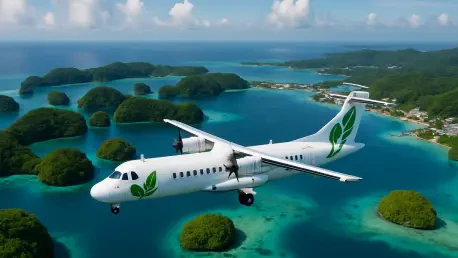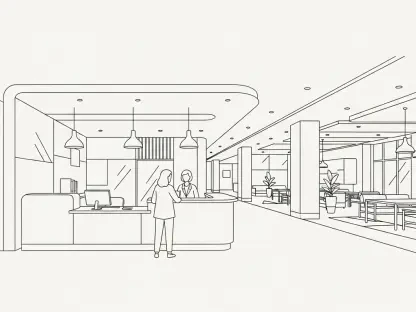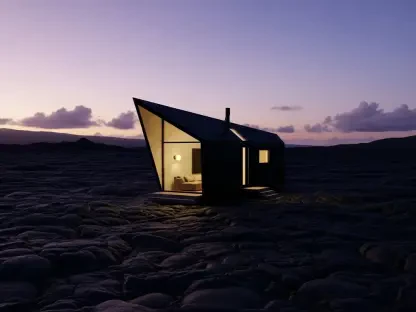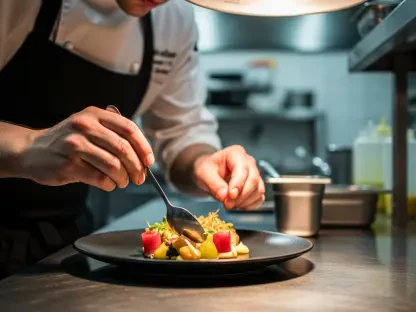I’m thrilled to sit down with Katarina Railko, a seasoned expert in hospitality and a prominent figure in the travel and tourism industry. With her deep knowledge of sustainable tourism and a passion for events and conferences, Katarina offers unique insights into the evolving landscape of international travel. Today, we’re diving into the exciting extension of Qantas’s Brisbane to Koror flight service to Palau, exploring how this route has fueled a surge in Australian visitors, the impact on Palau’s local economy, and the island nation’s standout commitment to sustainability. Let’s uncover what makes Palau a rising star among Pacific destinations and how direct flights are shaping travel trends.
What inspired Qantas to extend the Brisbane to Koror flight service for another year?
I think it’s all about the incredible response they’ve seen since the launch of the Palau Paradise Express in December 2024. The route has been a game-changer, with a 113% spike in Australian visitors to Palau in the first half of 2025 compared to the previous year. That kind of demand shows how much Australians crave unique, off-the-beaten-path destinations. The data speaks for itself—travelers are flocking to Palau, and Qantas saw an opportunity to keep that momentum going by extending the service.
How has the dramatic increase in Australian visitors affected Palau’s tourism industry?
It’s been a massive boost for Palau. Local businesses, especially those tied to tourism, are thriving with the influx. Hotels, dive shops, and tour operators are seeing more bookings than ever, particularly for activities like diving and eco-tours. The numbers are staggering—March and April 2025 alone saw a 146% jump in Australian arrivals. This kind of growth doesn’t just fill hotel rooms; it creates jobs and pours money into the community, helping small operators expand their offerings.
What do you think is driving Palau’s sudden popularity among Australian travelers?
Palau offers something truly special—a mix of untouched natural beauty and a deep commitment to sustainability that resonates with Australians. The Rock Islands, a UNESCO World Heritage site, are a huge draw with their stunning turquoise waters and coral reefs. But beyond the scenery, Palau’s eco-friendly ethos strikes a chord. Australians are increasingly mindful of their travel footprint, and Palau’s focus on preserving its environment makes it a guilt-free adventure destination.
In what ways has the direct six-hour flight from Brisbane transformed travel to Palau for Australians?
It’s made Palau far more accessible than ever before. A direct six-hour flight on a Saturday is a breeze compared to the multi-stop journeys of the past. Travelers have told me how much they appreciate the convenience—it’s a quick getaway to a remote paradise. That ease of access has turned Palau from a dream destination into a realistic weekend or holiday option for many Australians, and the feedback on the route’s simplicity has been overwhelmingly positive.
How has the Palau Paradise Express strengthened ties between Australia and Palau?
This route is more than just a flight; it’s a bridge between the two regions. Tourism is a lifeline for Palau’s economy, and the steady flow of Australian visitors has deepened economic and cultural connections. Local operators offering historical tours on Peleliu Island or sailing trips around the Rock Islands are seeing direct benefits. It’s also fostering potential for trade and further collaboration, and I wouldn’t be surprised to see even more initiatives to expand this relationship down the line.
What sets Palau apart as a sustainable travel destination in the Pacific?
Palau is a shining example of eco-conscious tourism. Their policies to protect marine life and ecosystems—like strict conservation measures for coral reefs—are unmatched in the region. They’ve created a model where visitors can explore incredible natural wonders without harming them. For Australian travelers who prioritize green travel, this is a huge pull. Palau proves you can have adventure and luxury while still respecting the planet, and that balance is rare.
What economic advantages has Palau gained from this boom in Australian tourism?
The economic impact has been tremendous. Australians now form a big chunk of Palau’s international visitors, and that translates to real growth. Dive excursions, eco-tours, and cultural experiences are seeing record bookings, which means more revenue for local businesses. Small operators are stepping up to meet the demand, though some face challenges with scaling quickly. Overall, this tourism surge is laying a strong foundation for Palau’s long-term prosperity, especially as it aligns with sustainable practices.
What is your forecast for the future of sustainable tourism in Palau?
I’m incredibly optimistic. Palau has positioned itself as a leader in sustainable travel, and with continued support from routes like the Palau Paradise Express, I see it becoming a benchmark for other Pacific destinations. The growing interest from eco-minded travelers, especially Australians, will likely push Palau to innovate further in conservation and tourism. I predict we’ll see even more tailored experiences that highlight their environmental ethos, alongside potential expansions in flight services to keep up with demand. The future looks bright for Palau as a must-visit sustainable haven.









